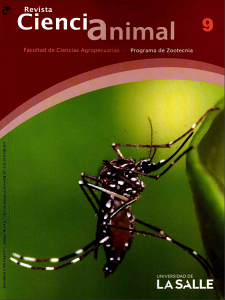Abstract
In order to validate rural participative diagnosis as a methodological tool for capturing information related to traditional sheep farming practices in high tropical systems, a pilot test was performed with sheep producers in three municipalities of Boyacá (Busbanzá, Gámeza, and Mongua). First, a participatory workshop was developed to identify common practices regarding sheep systems in the high tropics; next, a purposive sampling was created and 14 semi-structured interviews were conducted with producers from these municipalities. The information obtained was crossed with semi-structured interviews with four experts who were intentionally chosen for their expertise and academic impact. Based on the information thus obtained, a conceptual guideline was developed regarding the scope of the investigation, as well as a criterion for evaluating whether the research has been properly designed for local needs and whether the traditional information obtained could be used for preservation and educational dissemination of traditional and routinely used knowledge in sheep production.Downloads
Download data is not yet available.



